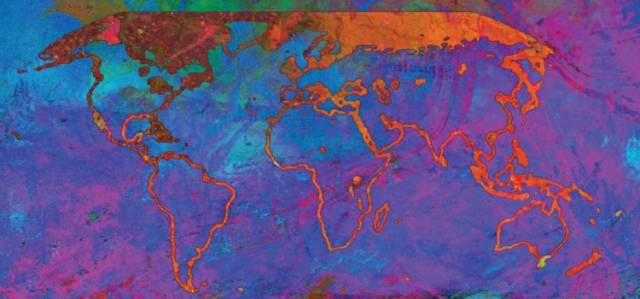The Intergovernmental Panel on Climate Change (IPCC) released a new report, Climate Change 2021: the Physical Science Basis, which brings together the most recent advances in climate science to outline the current state of climate change. The results are grave, as was explored in a recent ICLEI Talk Of the Cities piece, written by Dana Vigran of ICLEI’s World Secretariat and summarised below.
The opening line of the report’s Summary for Policymakers reads: “It is unequivocal that human influence has warmed the atmosphere, ocean and land.”
The report, which was approved by 195 national governments, shows the rapid human-induced change that is occurring in our climate. The concentration of CO2 in the atmosphere is the highest it has been in 2 million years, sea level rise is at its fastest in 3000 years and arctic sea ice is at its lowest levels in at least 1000 years.
“The IPCC report shows how much human behaviour has impacted our climate, not only putting our future at risk, but also our presence. The current alarming state should bring our ambitions and actions to a higher level, leading true leaders around the world to stand up and change this course. Let us now use all our human capacity to change for the better,” said Martin Horn, Lord Mayor of Freiburg, President of ICLEI Europe and Member of the European Covenant of Mayors Board.
The report also outlines the control that human populations have to limit these effects. Only immediate, rapid and large-scale reductions in greenhouse gas emissions will limit warming to 1.5°C and prevent the most devastating impacts of climate change.
Cities already see climate impacts
We are already seeing the effects of human-induced climate change around the globe. Extreme weather events, from wildfires across Southern Europe to extreme flooding in Western Europe, show the real life consequences of a climate that has already warmed by 1.1°C since the mid-1800s.
The science shows continued warming will affect the climate in multiple ways. It will bring more intense rainfall and flooding in some regions, and increased drought, heat and wild-fires in others. Increased warming will amplify the melting of glaciers and ice sheets while sea level rise also increases.
In cities, these impacts may be amplified. According to the Summary for Policymakers, urbanisation increases heavy precipitation over cities, and coastal cities will continue to see exacerbated flooding both from sea level rise and “extreme rainfall/riverflow events”. Cities and urban centres are also warmer than surrounding areas – often due to lack of natural cooling influences such as water and vegetation, according to the IPCC fact sheet on urban areas.
The role of local and regional governments in holding the line on 1.5°C
“Local and regional governments need to be a part of immediate and sustained reductions in greenhouse gas emissions if we are to have any chance of holding the line at 1.5°C and avoiding the most devastating impacts of climate change,” says ICLEI Secretary General Van Begin.
The European Green Deal seeks to ensure that Europe meets this goal, and becomes the first climate neutral continent by 2050. Local governments have a key role to play to ensure that we can meet this goal, as well as the critical calls that have come out of the IPCC report. Cities and regions across Europe are working to implement their own Local Green Deals, making use of the Mannheim Message and Basque Declaration to guide their work.
The role of public procurement
Public procurement is a key tool for supporting cities‘ ambitions in reaching their climate goals. By using their purchasing powers, cities are able to influence the development of innovative, more sustainable products and services and to foster systematic change.
For more information on Local Green Deals, click here. To read the full article on which this news piece was based, click here.





